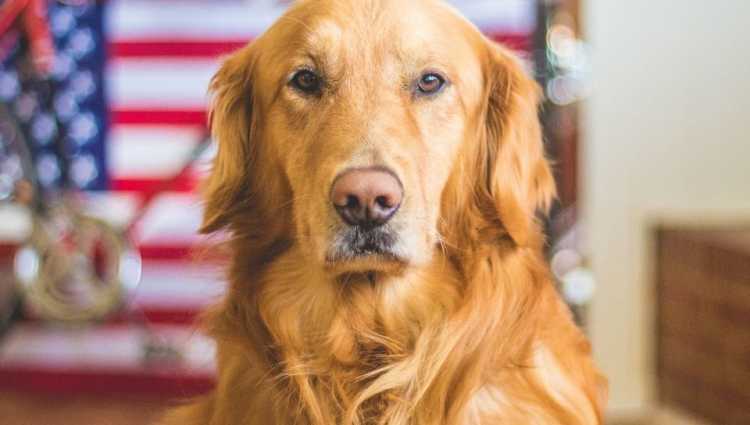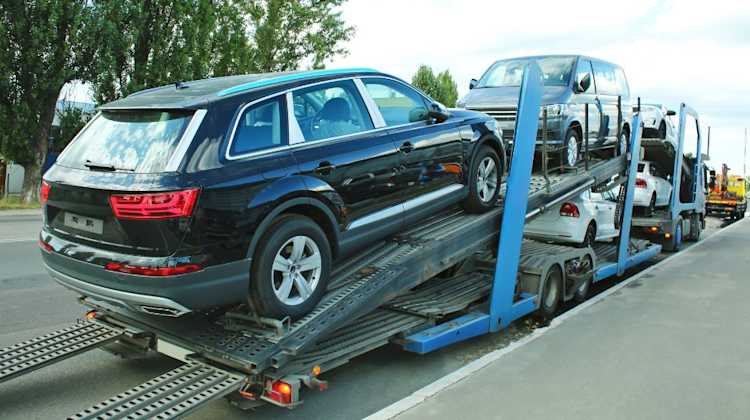Tips for Shipping Pets Overseas
by AmeriForce Media - September 27th, 2021

This article was originally published in Military Families Magazine. Read the original article on MilitaryFamilies.com. Follow Military Families on Instagram.
A Permanent Change of Station is burdensome, but adding an overseas move and beloved pets to the list stresses a military move to a whole new level. From figuring out country requirements, preparing the animals, and affording the hefty price tag, some people might question if pet ownership is worth it to military families.
“I feel like the first word is stressful,” said Dr. Laura Schultz, owner of CoastView Veterinary Clinic in San Diego and a seasoned Navy spouse who brought two hound dogs on multiple cross-oceanic moves. “We always moved across an ocean. I feel like I was pretty educated about it, but it was still kind of overwhelming and stressful to make sure everything was in order.”
Each country has its own requirements as to what is required for a pet to even begin its journey. From specific microchips, an extensive list of vaccinations, mandatory quarantines, ink-signed health certificates, to a specific timeline to complete requirements, the process can easily become overwhelming to someone already juggling the regular aspects of a move.
Capt. Alecia Agner with U.S. Army Veterinary Corps currently assigned to Andersen Air Force Base, Guam, says she knows firsthand how stressful a move can be because she brought a Chocolate Lab and a cat to the island.
“When people are beginning to PCS and they find out where they are going,” Agner said, “I definitely think that they need to find the information about the location where they are going.”
Finding accurate and up-to-date information can be taxing in itself, too, because not every country is alike. Rabies-free locations like Hawaii, Japan or Guam may even have more strict requirements than a European country. Plus, airlines have certain conditions as well.
In fact, starting the process long before a family has confirmed orders is something Andrea Fisher, a Navy spouse at Hickam Air Force Base, HI, facing a second move to Spain, is already doing despite being months away from the actual PCS.
“For us, it comes down to try and pre-plan as much as we can and as far out in advance as we can,” Fisher said.
Both Agner and Shultz recommended that anyone facing a PCS with pets, to utilize U.S. Department of Agriculture’s Animal and Plant Health Inspection Service’s website for the most accurate information available, in addition to reaching out to an Army veterinarian directly.
“You can call the local clinics at the destination that you are going to and they can help facilitate giving you the information,” Schultz said. “Between the Army resources and USDA APHIS, those are two really great things for people to have access to.”
Most importantly, though, Agner urges people to consider if bringing their pets on the overseas tour is the best decision for the family and/or the pet. She says that families need to recognize several factors like the inherent risk of putting an animal through the stress of being transported, the sizable cost of shipping an animal, and to consider what medical facilities are available at the next duty station and if they are adequate for the animal’s needs.
“Maybe leaving your pet back in the states with a close relative for a few years, while I know the pet is part of the family and you don’t want to do that and it’s gonna be really hard, maybe that really is the best thing for your pet,” Agner said.
Even more so, while Fisher is a self-proclaimed animal lover who will do whatever it takes to ship her three animals, she said, “You really gotta think hard and long on whether getting the animal is worth it.”
Schultz and Agner advocate for responsible pet ownership, regardless of the circumstance, but point out that military families have more to consider when thinking about adopting a pet. Civilian families might not need to consider the stresses on the animal or the family when accommodating them into a PCS.
“I think it is important for them to consider the fact that they are in the military when they consider bringing on animals,” Schultz said.
“You’re never going to get rid of military families having pet,” Agner added. “You’re not gonna get rid of any population of families having pets. It’s part of the culture, honestly. But I think that we have to take more things into consideration and be responsible in aspects that other people wouldn’t have to.”
Tips for shipping a pet overseas:
Start preparing the animal(s) for the move long before receiving paper orders. Abundant time is key in having a successful, stress-less move with pets.
Use USDA APHIS’s website as a starting point to understanding requirements, and reach out to the U.S. Army Veterinary Corps for further help.
Be aware of the cost. Save in advance for the veterinarian bills and shipments to and from the country.
Prepare all pets for travel by crate training them to reduce the stress of a move. Practice traveling with them in a car, and work with a trusted veterinarian to find a solution to help make pets comfortable.
Do not adopt a pet if you cannot financially or physically care for them in the event of a PCS. Always be aware that an international move is a possibility, even if remote.
Do not hesitate to lean on the military community or family for help in extreme circumstances. Financial aid resources and fostering organization are available to help, too.







